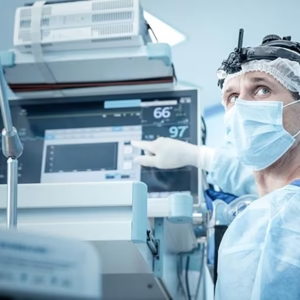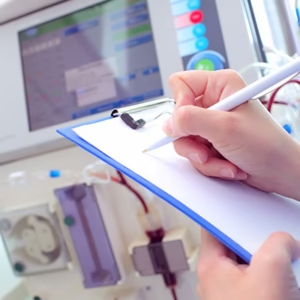Becoming a Regulatory Affairs Manager for Medical Devices

The role of a Regulatory Affairs Manager (RAM) in the medical device industry is multifaceted and demanding. It requires a thorough understanding of complex regulations, effective communication and coordination skills, as well as the ability to balance innovation with compliance. This role is crucial in ensuring that medical devices are safe, effective, and compliant with regulatory requirements.
This 2-day classroom training will equip participants with the necessary knowledge and skills needed to lead the RA function at a medical device organization, while providing an opportunity to network with like-minded professionals within the industry.
Course outline
- Overview of Regulatory Affairs in the medical device industry – review the key responsibilities of an RA Manager and the important medical device regulations in the EU (MDR) and US (FDA) with an overview of other key markets and legal requirements.
- Developing a Regulatory Strategy and Planning- Identifying regulatory pathways for different types of medical devices and strategic planning for product development and market entry.
- Balancing innovation and compliance – overview of the requirements for the Product Documentation and Technical Files, with practical guidance for creating and maintaining a Technical File and best practices when structuring and updating documentation ensuring risk management throughout the product lifecycle
- Compliance and Quality Management Systems- Understanding Quality Management Systems (QMS) and Good Manufacturing Practices (GMP) and the role of QMS in regulatory compliance to support internal audits and inspections
- Marketing and Labeling Compliance under MDR & FDA – the requirements for marketing materials, ensuring compliance with labeling standards, link between intended use, clinical evaluation, and marketing claims.
- Managing regulatory submissions – the Registration and Approval Processes including steps for registering medical devices in different markets, preparing and submitting regulatory submissions and managing interactions with regulatory authorities.
- Collaborations with stakeholders- Best practices for coordination and communication with various internal and external stakeholders, including regulatory authorities, Notified Bodies, distributors, and different departments within the company. Regulatory considerations for working with distributors.
- Post-Market Surveillance and Vigilance – requirements, handling adverse events and product recalls and reporting obligations and vigilance activities following appropriate change control and notification processes for authorities on what to report and how.
- Common Challenges and Best Practices- sddressing common regulatory challenges through case studies and real-world examples to highlight the best practices within the industry.
Learning objectives
After completion of this course you will be prepared to…
- Describe applicable regulatory requirements through comprehensive knowledge of global regulatory frameworks, including FDA, EU MDR, and other international regulations governing medical devices.
- Develop and implement compliance strategies to ensure that medical devices meet all regulatory requirements throughout their lifecycle.
- Prepare and submit regulatory documents, including 510(k) submissions, PMAs, and CE marking applications.
- Provide input to Quality and Risk Management as well as Clinical Evaluation Plans and Reports, from an RA perspective
- Perform regulatory activities within a quality framework such as ISO 13485 to ensure continuous compliance.
- Support and manage critical regulatory Post-Market Surveillance activities, including adverse event reporting, recalls, and corrective actions.
- Lead and manage regulatory audits and inspections as applicable for your role, ensuring readiness and compliance with regulatory bodies.
Who should attend?
The training is suitable for regulatory professionals who want to strengthen their competency in medical device regulations and the role as RA Manager, including those who need documented competency as the PRRC (“person responsible for regulatory compliance”).
Prerequisites:
Participants should have a basic knowledge of quality systems and medical device regulations, ideally with 6-12 months working in a regulatory role or having equivalent knowledge from internal company quality system/regulatory training.
#5234
€ 1 950 Original price was: € 1 950.€ 1 560Current price is: € 1 560.
Exclusive price offer until Dec 31st, 2025 - 20% discount + 15% for 3 participants or more.




